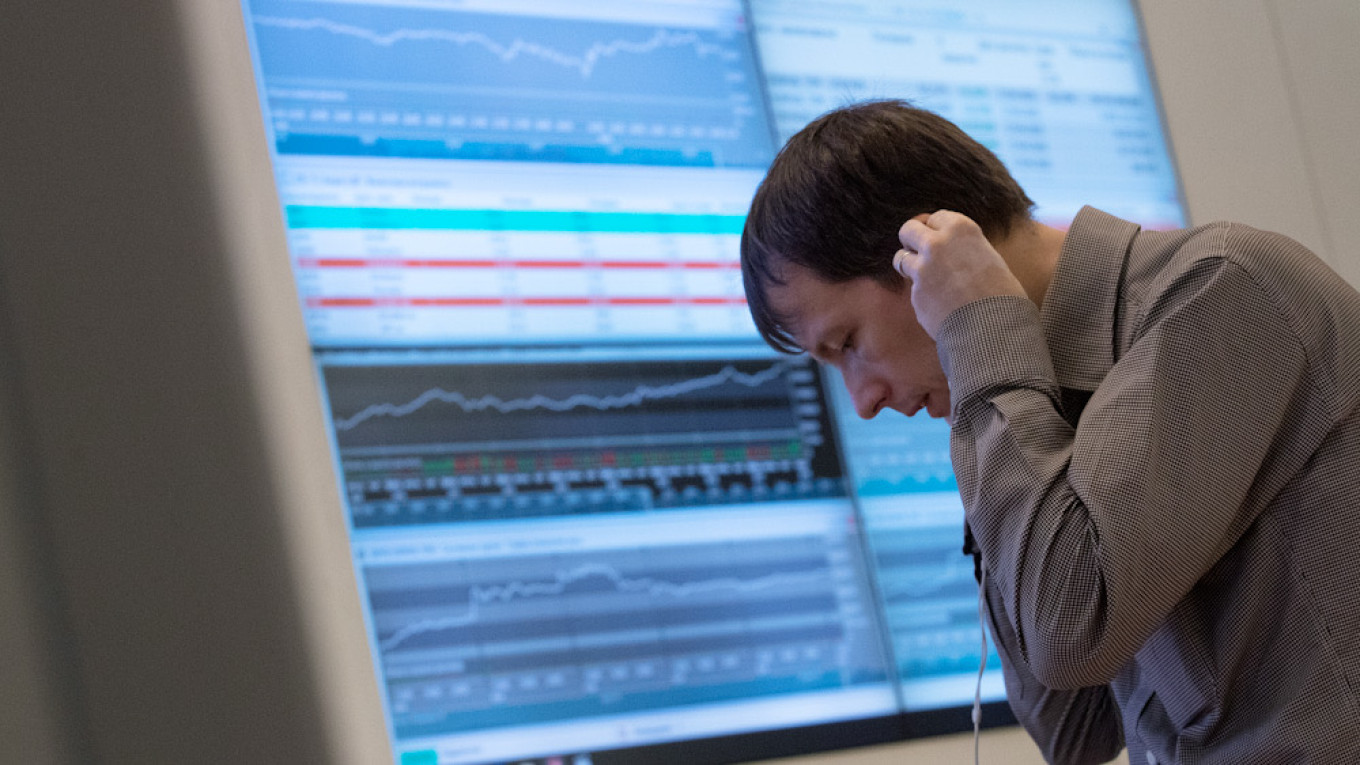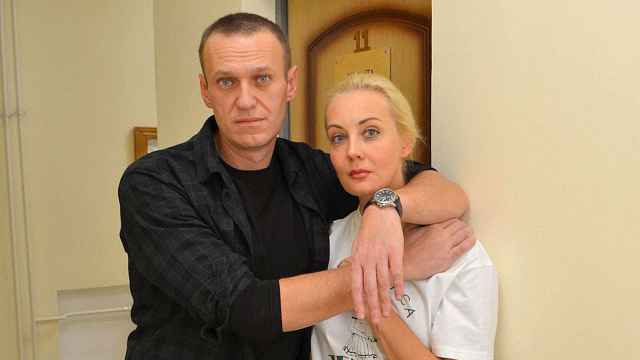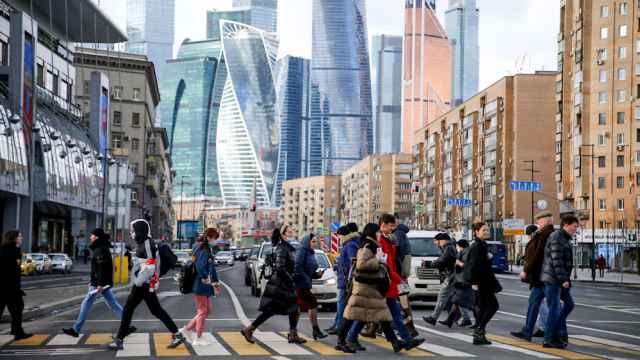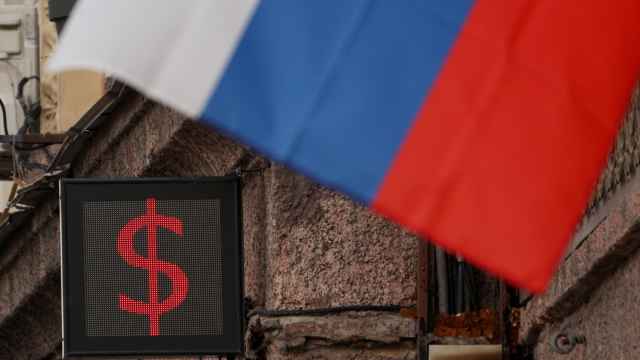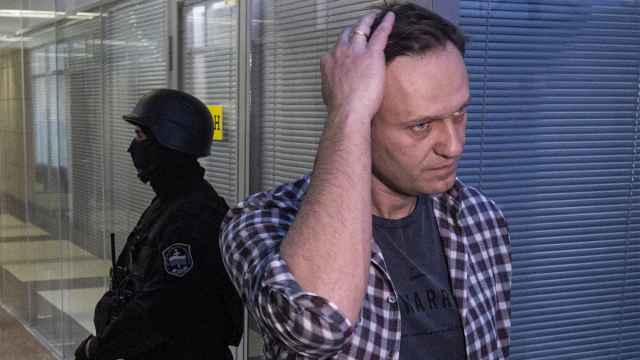Russia’s financial markets were unfazed Monday morning following the detention of Alexei Navalny on his return to Russia.
The Kremlin’s most vociferous and high-profile critic was detained at passport control in Moscow’s Sheremetyevo Airport late Sunday evening after returning from Germany where he was being treated for Novichok poisoning.
The detention was met with immediate condemnation from U.S. and European leaders as well as new calls for sanctions against Russia in retaliation.
But financial markets were relatively steady as trading opened in Moscow on Monday morning. The ruble was down by 1% against the euro, at 89.4 and 0.8% against the U.S. dollar at 74.1 — slight falls which took the currency back to levels seen early last week.
The MOEX Index of Russia's leading stocks slipped by 0.5%, but still remains just below recent record highs. Global markets were also slightly in the red Monday morning, as fresh concerns over more-transmissible strains of the coronavirus had spooked traders, Sberbank analysts wrote in a daily research note. Nevertheless, the Sberbank currency analyst Yuri Popov said he expects the “ruble to be under pressure in the coming days amid elevated geopolitical tension.”
The muted reaction contrasts the dramatic sell-off last September, when analysis conducted in Germany determined the leading Kremlin critic had been poisoned with a nerve agent from the Novichok family — a banned chemical weapon which had also been used in the 2018 attack on former Russian spy Sergei Skripal in Britain. The presence of Novichok on samples taken from Navalny after his medical air transfer to Berlin was later confirmed by laboratories in Sweden and France.
At that time, both the ruble and Russian stock market plunged dramatically as investors feared a possible tough response and new round of economic sanctions against Russia.
Analysts continue to point to the so-called “geopolitical” element in the ruble’s exchange rate, arguing the currency could be 5-10% stronger were it not for heightened tensions between Moscow and the West.
In a report published Friday — before Navalny’s dramatic return — ratings agency Standard and Poor’s said it expected the incoming Biden administration in the U.S. would introduce “moderate” sanctions against Russia, though estimated the consequences would be “manageable.”
“The shape and timing of additional sanctions are uncertain, since they stem from Russia's foreign policy actions and developments in the U.S. political landscape, both of which are difficult to predict,” the report added.
A Message from The Moscow Times:
Dear readers,
We are facing unprecedented challenges. Russia's Prosecutor General's Office has designated The Moscow Times as an "undesirable" organization, criminalizing our work and putting our staff at risk of prosecution. This follows our earlier unjust labeling as a "foreign agent."
These actions are direct attempts to silence independent journalism in Russia. The authorities claim our work "discredits the decisions of the Russian leadership." We see things differently: we strive to provide accurate, unbiased reporting on Russia.
We, the journalists of The Moscow Times, refuse to be silenced. But to continue our work, we need your help.
Your support, no matter how small, makes a world of difference. If you can, please support us monthly starting from just $2. It's quick to set up, and every contribution makes a significant impact.
By supporting The Moscow Times, you're defending open, independent journalism in the face of repression. Thank you for standing with us.
Remind me later.


